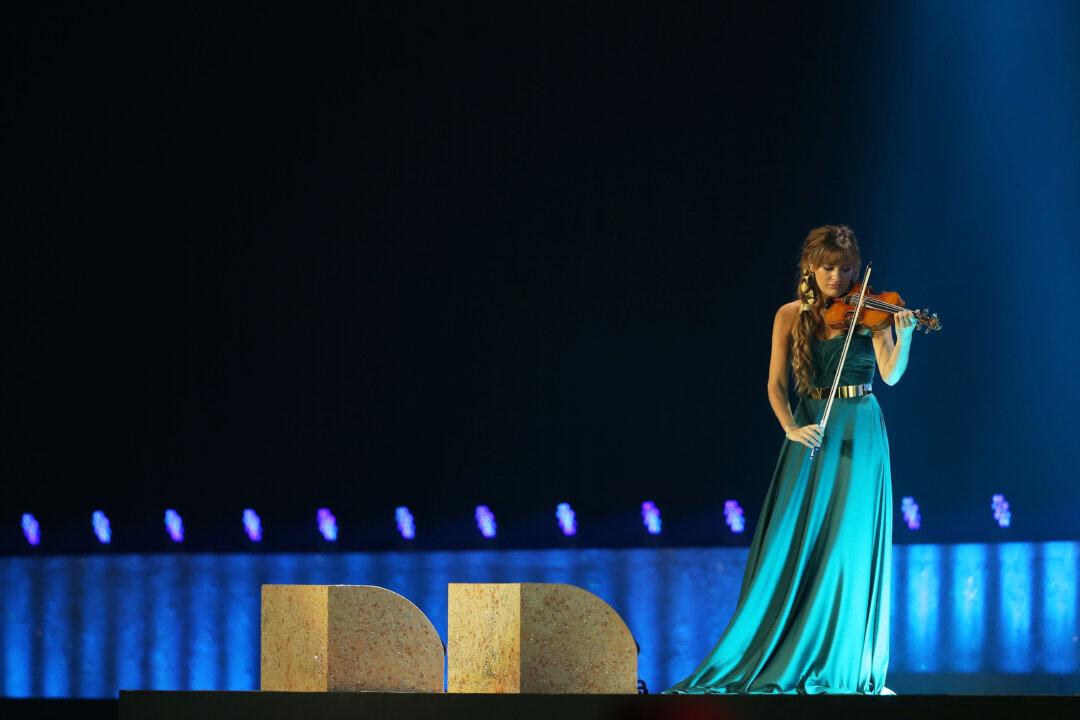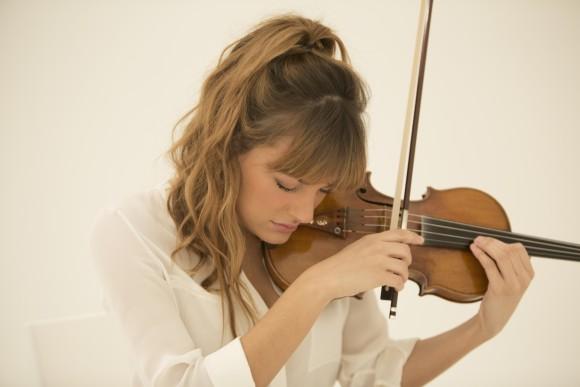Violinist Nicola Benedetti, who has sensitivity and intelligence in spades, is an influential advocate for classical music and music education.
She devotes herself to actively promoting and teaching classical music because its power is incomparable, and not at all inexplicable. Benedetti, who has all her life been interested in what people do and why, has continually examined what music is capable of, starting with her earliest memories of it.
Unlike most high-profile classical musicians, Benedetti did not come from a musical family. Neither of her parents were involved in music in any way, and they had no special interest in classical music.
But Benedetti’s older sister played the violin, and she just wanted to copy her.
“I didn’t know anything about the violin or about a life in music, but from a really young age, I was really moved by music,” said the Scottish violinist. “It was the most striking reaction that I had. ... I always had a very strong emotional reaction to it.”
“Music has quite literally provided me with the strongest, most deeply felt moments in my life,” she said. “And that’s including losing loved ones, being in love, extreme happiness and sadness. The strongest moments I’ve had through music, the reason why [they] are stronger than all of those moments, is that music encapsulates all of these moments at once.”
Music takes all of the sensations and emotions we’ve had in our lives and makes sense of them, reflects them back, brings them to the fore, and heals, Benedetti said. It is why she says she has dedicated her life to getting at the core of her craft as a classical violinist and sharing this with others.
Benedetti’s outreach involves several music education advocacy programs: She was recently announced as a patron for Music in Secondary Schools Trust; she is a big sister for the charity Sistema Scotland, which brings orchestra programs to young students; she is vice president of the National Children’s Orchestra of Great Britain; and she is an ambassador for education programs Young Musician and TEN Pieces, on top of having developed her own outreach programs.
As such, Benedetti spends a lot of her time interacting with students, teaching or performing for them. She says she often hears from students before a performance: “What do you think we are gaining from this? What is your feeling about it?”
Benedetti says music helps us get at what is most important in life.
“If you look at these surveys and interviews that are done with people at their last stage in life, when they’re asked about their most important things looking back at their lives, what are their regrets, what are their cherished things—generally, things boil down to the importance of relationships,” Benedetti said.
Family, friends, cultural groups, or even society as a whole are what we value most, according to these studies. Music won’t solve all our problems, but it does ease communication and help with relationships, Benedetti said.
“For people who are open to feeling, I absolutely think it can help bind thoughts and bind connections between people,” she said.
So as an artist, this is what Benedetti tries to enable.
“To bring beauty and light to people’s lives ... to bring a level of quality in a certain art form, and infuse that with the most genuine and heartfelt emotion, emotional weight that I can muster.”
Interpreting Baroque Freedom
Benedetti is a violin soloist who primarily performs concertos, and has done so with many major orchestras around the world. In February, she will be touring coast to coast across North America with the Venice Baroque Orchestra led by Andrea Marcon, playing all Italian Baroque music.
With Italian Baroque music, there is a kind of freedom not found in the music written after the period, from classical onward, Benedetti said. It’s not improvisation, but there are embellishments typical of the style that create “a kind of stylistic and interpretive freedom that surfaces constantly,” she explained.
“If you can actually step into that role and allow that feeling [of freedom] to take over, it can be the most exciting thing for you as a performer, for people listening, and for the collective music-making experience on stage.”
What Composers Have to Say
The types of minds who wrote the great music that makes up the core repertoire of classical music only come by every now and again, Benedetti believes. The time period composers like Beethoven lived in certainly helped.
“I think the people that were writing this music were kind of the mythologists and philosophers and scientists—creators of an extremely high level. They were trying to tap into some kind of understanding of humankind that was relevant to people at the time and continues to seem relevant now,” she said.
“Periods of time produce a concentration of people being able to put that level of thought and insight into a practical work, like a symphony or scientific discovery.”
Take Beethoven, who wrote music during the Enlightenment period, when people were all asking broad, high-minded questions about the rights of humanity. Or Vivaldi, who was a priest, educator, composer, and virtuoso violinist, and on top of creating hundreds of works, chose to work in an orphanage for several decades of his life.
“The type of mindset and general humanity that a lot of these composers had, I think there’s something much larger to it than just what they could do within music,” Benedetti said. “Their belief in their work and the power of it was part of a much larger mechanism.”
Benedetti said she thinks what they did was actually quite sacrificial, often putting themselves into uncomfortable positions emotionally in order to create a work of art that would benefit the world and actually make a difference.
This is a quality she sees in some composers today and is still fascinated by. Last summer, she premiered a concerto written for her by composer, trumpeter, and bandleader Wynton Marsalis that she felt encompassed so many topical issues about America today.
Off the top of her head, Benedetti also named Mark Simpson, a young composer who she said is “willing to just kind of sit in those [uncomfortable internal positions] ... and understand that all of that is a necessary part of the process of his developing his voice, and developing a voice that is going to be more and more worth something to people.”
Benedetti finds herself drawn to creativity for a greater cause.







